 Charlie Miller, GCDD Legislative Advocacy DirectorThe legislative session officially ended on Friday, April 4, 2025 at 10:30 p.m. It wrapped up earlier than usual and without much fanfare, but Georgia's disability community made great strides in advancing strong public policy for the entire state.
Charlie Miller, GCDD Legislative Advocacy DirectorThe legislative session officially ended on Friday, April 4, 2025 at 10:30 p.m. It wrapped up earlier than usual and without much fanfare, but Georgia's disability community made great strides in advancing strong public policy for the entire state.
Georgia has one of the shortest legislative sessions in the country — just 40 working days. That means any bill hoping to become law must be introduced, debated, and voted on within that tight window, and there are many steps between a bill’s introduction and the governor’s signature.
In this article, we’ll review some of the key legislative wins for people with disabilities and the hard-fought advocacy behind them, highlighting how community voices, persistence, and strategic partnerships made a real difference.
Listening to the Community
Each year before the session begins, the Georgia Council on Developmental Disabilities (GCDD) sends out a survey asking about public policy priorities. This feedback helps guide our advocacy efforts and ensures we’re focusing on what matters most to our community. It is a grassroots way to make sure that our work is people-centered and community-driven. It reminds us that the most effective policies are built not just in committee rooms, but also from lived experience.
This year, we not only fought for our set priorities — we also stayed ready to respond quickly when new issues affecting our community came up. That flexibility is a key part of our advocacy approach: not only being proactive, but also prepared to be reactive when needed. Whether it's standing up for dignity in the workplace or defending essential safeguards, we show up where our community needs us most.
Ending Subminimum Wage for People with Disabilities
Did you know that in Georgia, it's still legal to pay people with disabilities less than minimum wage? Some workers are paid as little as $0.22 an hour for their labor. This practice is permitted under the federal 14(c) certificate program, a law that dates back to the 1930s. It was originally designed to help returning war veterans re-enter the job market, but over time it has been misused and has perpetuated a system that undervalues the contributions of people with disabilities.
Currently, only eight community rehabilitation providers in Georgia still use this outdated model. These organizations receive special certification to legally pay people below minimum wage, often while labeling it as “training.” But the reality is that these individuals are doing real work without fair pay, and that’s unacceptable.
In 2023, our advocates introduced this issue to Representative Sharon Cooper who showed immediate interest. Although that bill didn’t cross the finish line in time last year, we weren’t discouraged. This year, the community came back stronger. Senator Billy Hickman reintroduced the issue as Senate Bill 55, known as the Dignity in Pay Act. Thanks to persistent advocacy, community engagement, and legislative champions, the bill passed with overwhelming support — only six lawmakers voted against it across both the House and Senate.
We at GCDD see this as a major victory for disability rights in Georgia. The passage of this bill sends a strong message: work has value, and people with disabilities deserve the same dignity and respect as anyone else. The end of subminimum wage in Georgia is not just symbolic — it’s a concrete step toward economic justice and true inclusion.
8,000 and Counting: Georgia’s Waiver Waitlist
One of the cornerstones of true community inclusion is being able to access support and services outside of institutional settings. In Georgia, this is made possible through the NOW (New Options Waiver) and COMP (Comprehensive Supports Waiver) programs. These Medicaid waivers provide critical funding that helps people with disabilities live, work, and thrive in their communities.
With these waivers, individuals can hire personal care attendants, access day services, and receive job coaching and employment support — all of which are essential to daily living. However, access is limited. Right now, just under 8,000 Georgians are on the waitlist for these services.
Every year, we join others in the disability community to advocate for more waivers. We share stories, meet with lawmakers, and emphasize the urgency and return on investment of providing these supports. This year, through the state’s budget process, we were able to secure 150 new waivers, totaling just over $3.4 million in funding. While this is a step in the right direction, it barely scratches the surface of the need.
A growing waitlist means more families living in uncertainty, more individuals unable to live independently, and more missed opportunities for community inclusion. We are hopeful that in the coming years, continued advocacy and stronger funding commitments will lead to real reductions in the waiver waitlist. GCDD will be working hard on this goal in the months to come.
Intellectual and Developmental Disability Commission
The idea behind Georgia’s Intellectual and Developmental Disability (IDD) Commission is simple but powerful: support the whole person, not just one aspect of their life. Disability affects every area of a person’s experience — education, housing, health care, employment, transportation, and more. Solutions must be just as comprehensive.
Through discussions with the General Assembly, we supported an idea to expand the existing Behavioral Health Reform and Innovation Commission to include representation from the disability community. This idea became part of the successful Senate Bill 233. This step may seem small, but it’s an important signal that disability issues must be included in broader health and policy conversations.
Our hope is that this will lead to a more coordinated, long-term strategy for meeting the needs of people with intellectual and developmental disabilities. Rather than patching together services here and there, we can work toward a unified roadmap that supports every stage of life.
Hard-Fought Advocacy
Not every bill we engage with is easy to explain or instantly popular. Some are complex, sensitive, and require careful education. But they’re no less important.
One such bill was House Bill 123, sponsored by Representative Bill Werkheiser and championed by Faith Leaders Against the Death Penalty. This bill changes how capital punishment cases are handled in Georgia when a defendant has an intellectual disability. Under this legislation, someone accused of a capital crime can ask the judge — before the trial begins — to determine whether they have an intellectual disability. If the judge agrees, the death penalty cannot be pursued in that case.
This bill also includes clear procedures for how evidence is shared, how hearings are conducted, and how juries are instructed. It ensures fairness and due process, while protecting individuals who should never face the death penalty due to their intellectual disability. GCDD’s Council took a favorable position on this idea, and we worked alongside community partners to advocate on the issue. After many years of effort, House Bill 123 has officially passed the General Assembly and is on its way to the Governor’s desk.
Another piece of legislation that required fast action was House Bill 36, which proposed expanding the list of professionals authorized to participate in the guardianship process. Specifically, it would have added Licensed Marriage and Family Therapists (LMFTs) and Licensed Professional Counselors (LPCs) to the list of those who can evaluate individuals for potential guardianship.
While these professionals play important roles in mental health care, determining whether someone needs a legal guardian is an incredibly serious matter. It is GCDD’s stance that LMFT’s and LPC’s do not have the specialized knowledge base and training to make these life-altering decisions. Guardianship decisions can take away a person’s rights and independence, so the process must be approached with great care.
After back-and-forth conversations with the bill’s sponsor and supporters and powerful testimony from Uniting for Change and a GCDD Council member, LMFTs were removed from the bill. LPCs remain in the bill, which did pass, but advocates made meaningful progress educating lawmakers about issues around guardianship. This gives us a strong foundation to build on next year.
What’s Next?
Now that the legislative session is over and lawmakers, advocates, and lobbyists have returned to their home districts, this is the perfect time to connect with your elected officials. Let them know that disability issues matter — and that you care about how they vote.
You can send an email, make a phone call, or even invite them to coffee. Better yet, invite them to visit a local disability service provider or advocacy group in your area. Show them the real people behind the policies.
Our advocacy doesn’t end when the session does. In fact, it’s just getting started. Let’s keep building relationships, growing our movement, and pushing for a Georgia where everyone has the opportunity to live a full and inclusive life.
Together, we can keep the momentum going.
 D'Arcy Robb, GCDD Executive DirectorEverything, everywhere, all at once.
D'Arcy Robb, GCDD Executive DirectorEverything, everywhere, all at once. 
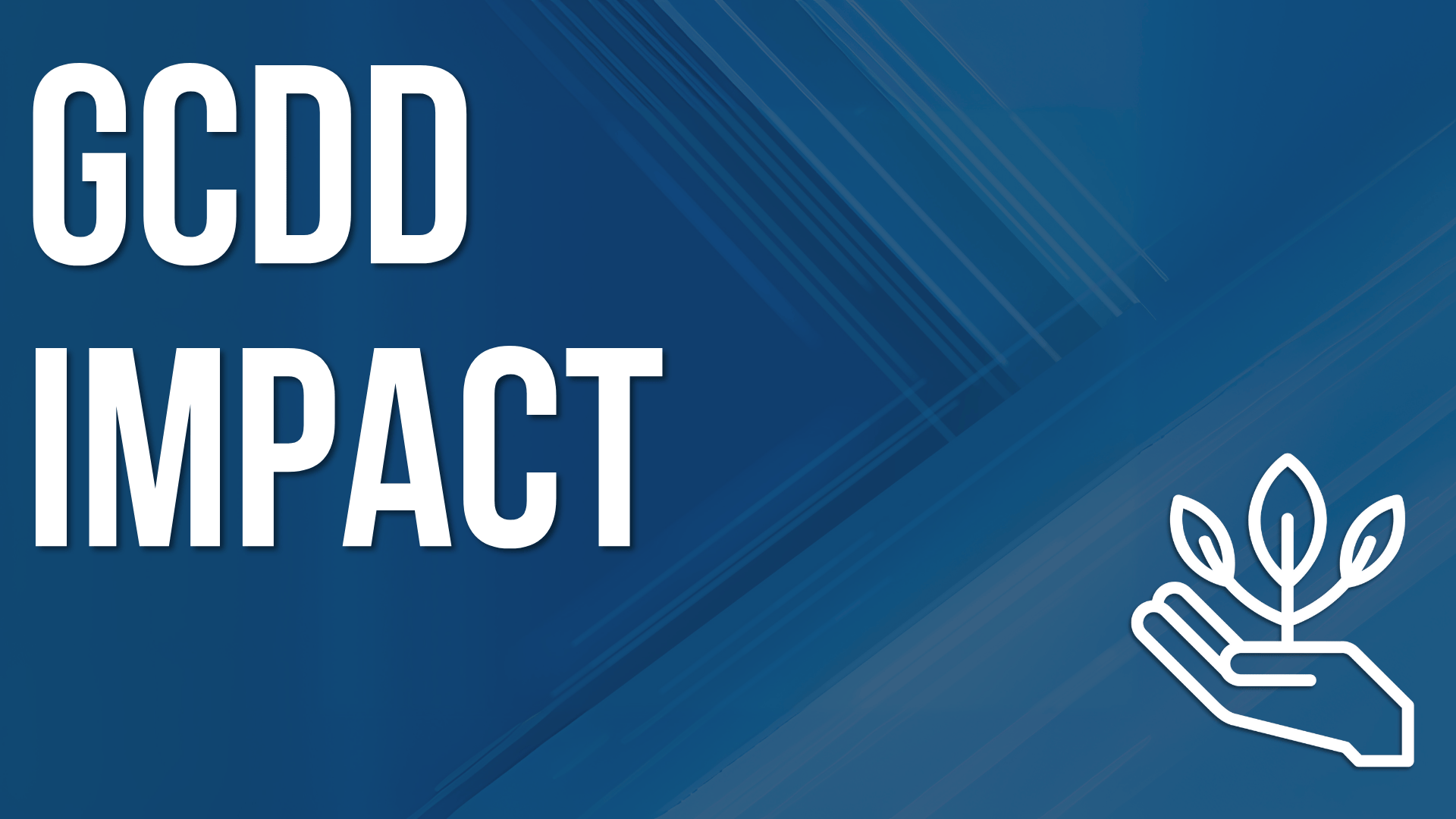

 The Shepherd Hotel in Clemson, SC is a shining example of building the bridge from education to employment. Williams helped shape the hotel’s business strategy, built with I/DD inclusion at the foundation. The Shepherd employs people with I/DD in customer-facing roles across all departments. Its goal is for every patron to have a positive interaction with one of those staff members.
The Shepherd Hotel in Clemson, SC is a shining example of building the bridge from education to employment. Williams helped shape the hotel’s business strategy, built with I/DD inclusion at the foundation. The Shepherd employs people with I/DD in customer-facing roles across all departments. Its goal is for every patron to have a positive interaction with one of those staff members.  Through a partnership with the ClemsonLIFE IPSE program, The Shepherd offers internship opportunities that often lead to full-time jobs for people with I/DD. These internships aren’t just resume-builders; they’re how students build networks, gain references, and land jobs. They create a launchpad for long-term career opportunities.
Through a partnership with the ClemsonLIFE IPSE program, The Shepherd offers internship opportunities that often lead to full-time jobs for people with I/DD. These internships aren’t just resume-builders; they’re how students build networks, gain references, and land jobs. They create a launchpad for long-term career opportunities.  “We would love to expand to a Georgia college,” said Harris, “especially with strong IPSE programs already in place in Atlanta and Athens. Hotel employees can work and live in the same place where they had their first independent living experience.”
“We would love to expand to a Georgia college,” said Harris, “especially with strong IPSE programs already in place in Atlanta and Athens. Hotel employees can work and live in the same place where they had their first independent living experience.” 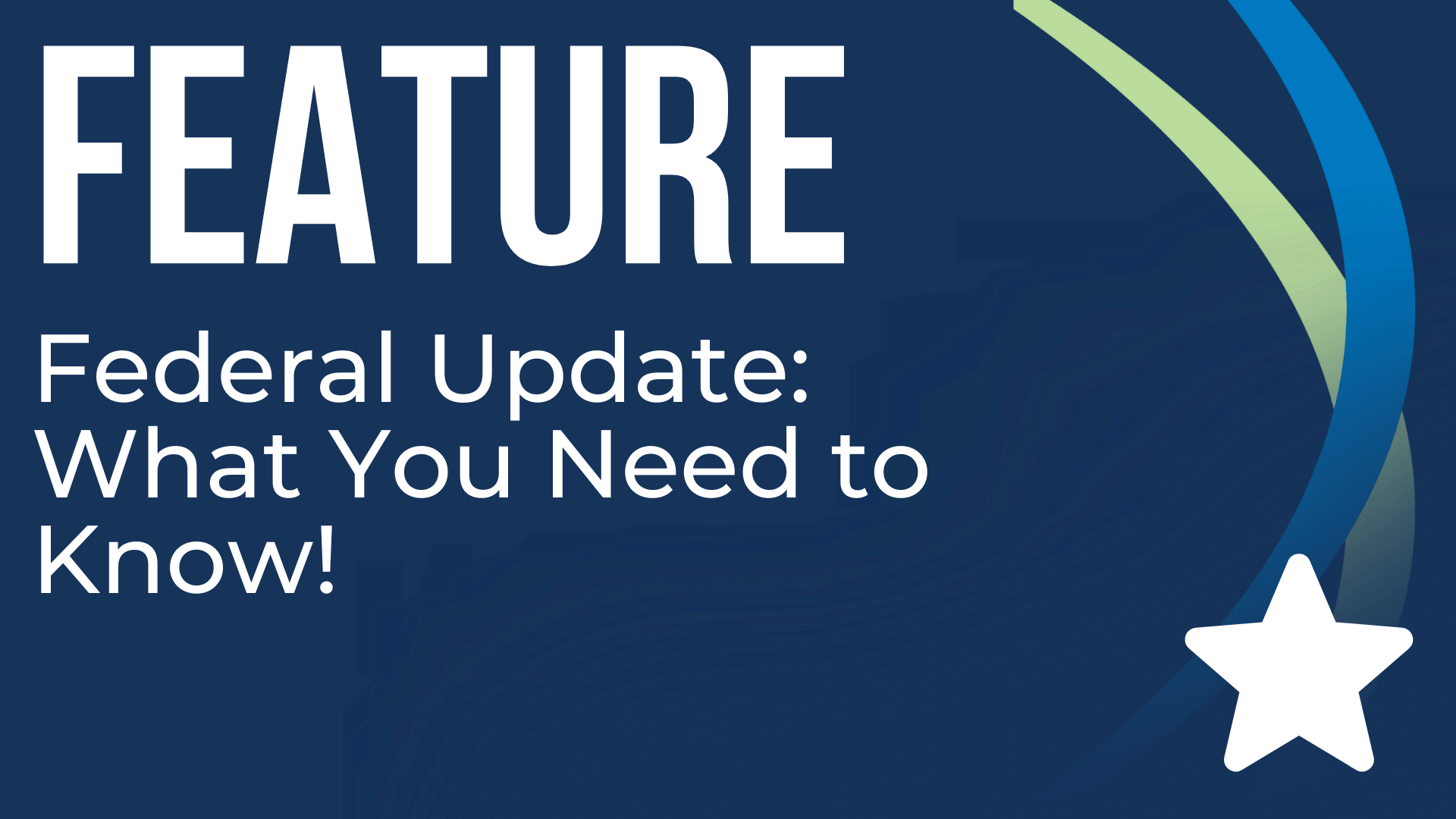

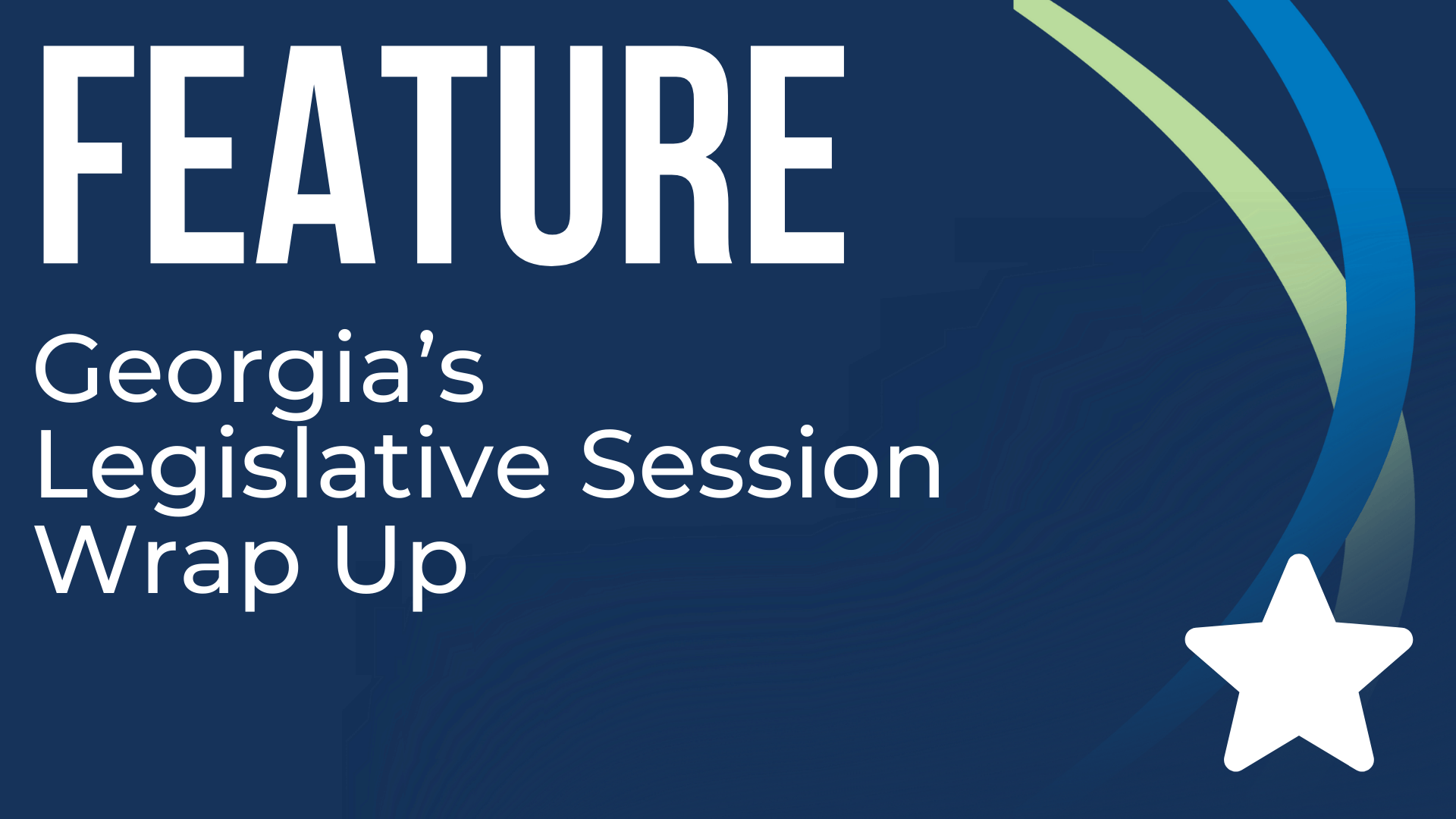


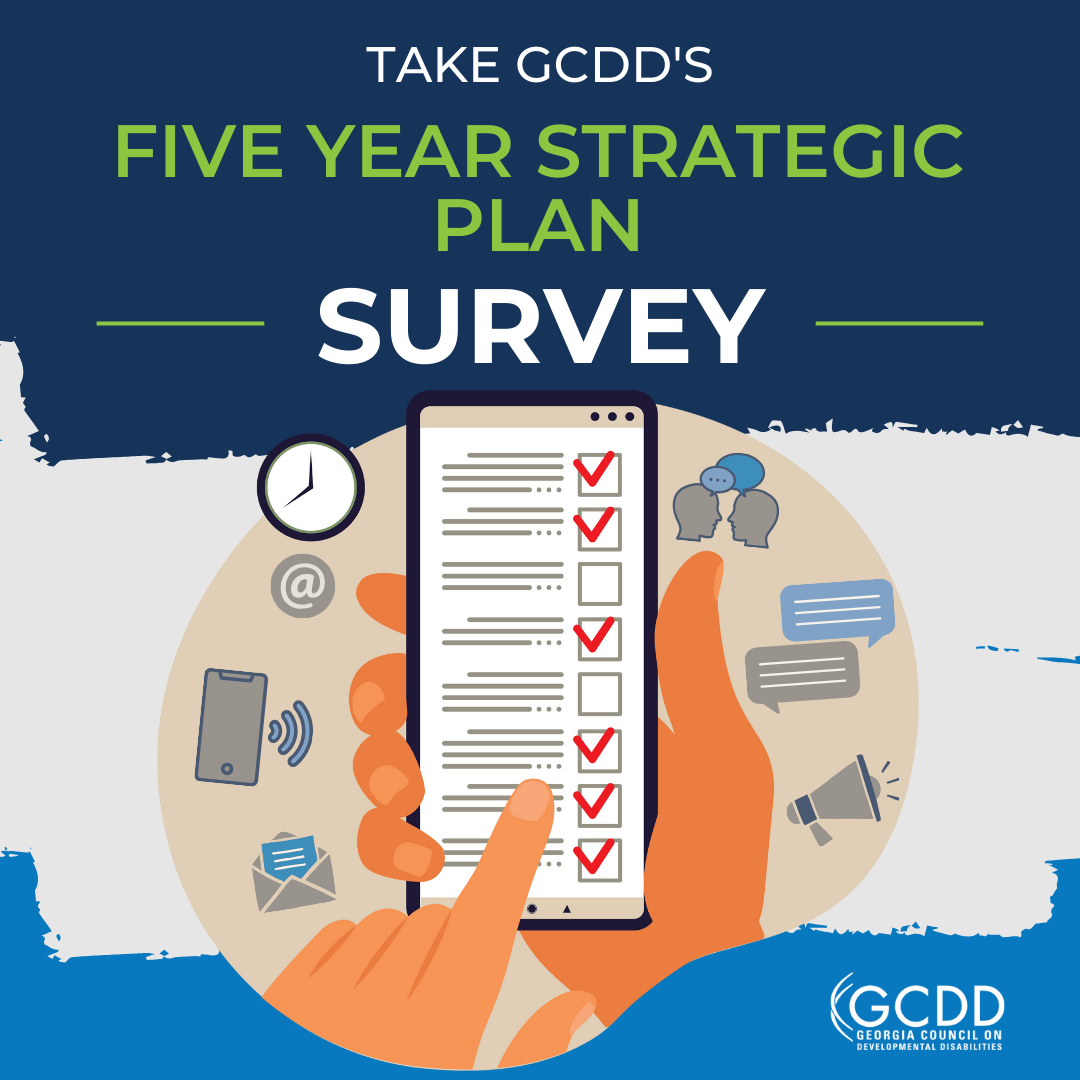 The Georgia Council on Developmental Disabilities (GCDD) continues to seek public input for its 2027-2031 Five-Year Strategic Plan project. Information gathered from stakeholders across the state will help GCDD form a strategic plan to create systems change for individuals with intellectual and developmental disabilities (I/DD) and their families. The final plan will guide projects that help the Council influence public policy at both state and federal levels, support capacity building through technical assistance and grants, facilitate discussions on creating change, and promote public awareness of the needs of the disability community.
The Georgia Council on Developmental Disabilities (GCDD) continues to seek public input for its 2027-2031 Five-Year Strategic Plan project. Information gathered from stakeholders across the state will help GCDD form a strategic plan to create systems change for individuals with intellectual and developmental disabilities (I/DD) and their families. The final plan will guide projects that help the Council influence public policy at both state and federal levels, support capacity building through technical assistance and grants, facilitate discussions on creating change, and promote public awareness of the needs of the disability community. 
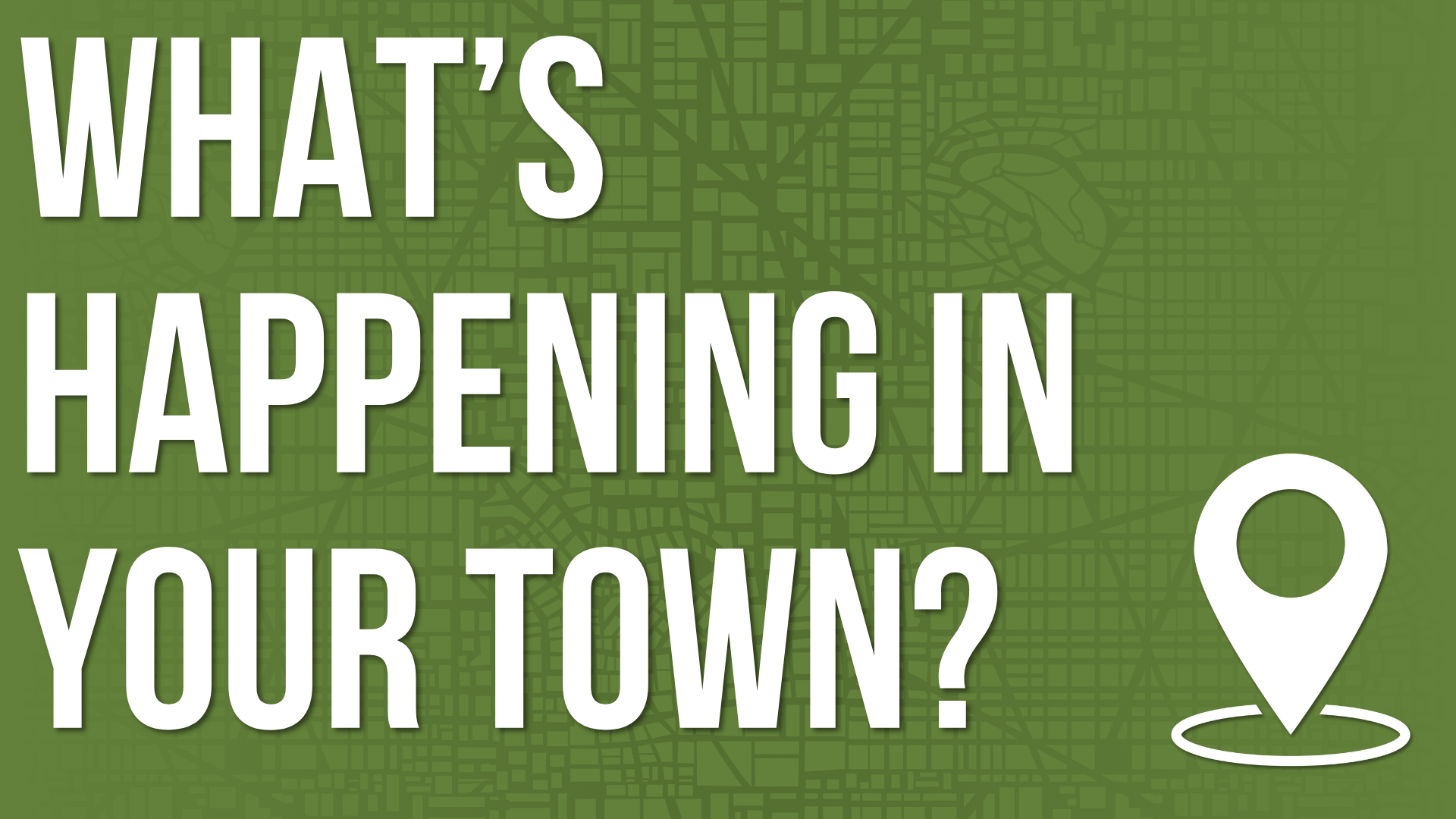
 I am still in high school and will graduate in May 2027 and I'm really excited about it. After high school, I plan on attending one of Georgia’s Inclusive Post Secondary Education (IPSE) programs. I want to explore other IPSE programs before making my final decision. So far, I’ve visited the University of Georgia’s (UGA) Destination Dawgs IPSE Program and three other IPSE programs to learn more about their programs to see if they’re a good fit for me. My mom and I plan to visit more colleges to find the best option for me. My goal is to be a teacher. I hope to become a Special Education teacher, just like my favorite teacher, Mrs. Hinds.
I am still in high school and will graduate in May 2027 and I'm really excited about it. After high school, I plan on attending one of Georgia’s Inclusive Post Secondary Education (IPSE) programs. I want to explore other IPSE programs before making my final decision. So far, I’ve visited the University of Georgia’s (UGA) Destination Dawgs IPSE Program and three other IPSE programs to learn more about their programs to see if they’re a good fit for me. My mom and I plan to visit more colleges to find the best option for me. My goal is to be a teacher. I hope to become a Special Education teacher, just like my favorite teacher, Mrs. Hinds.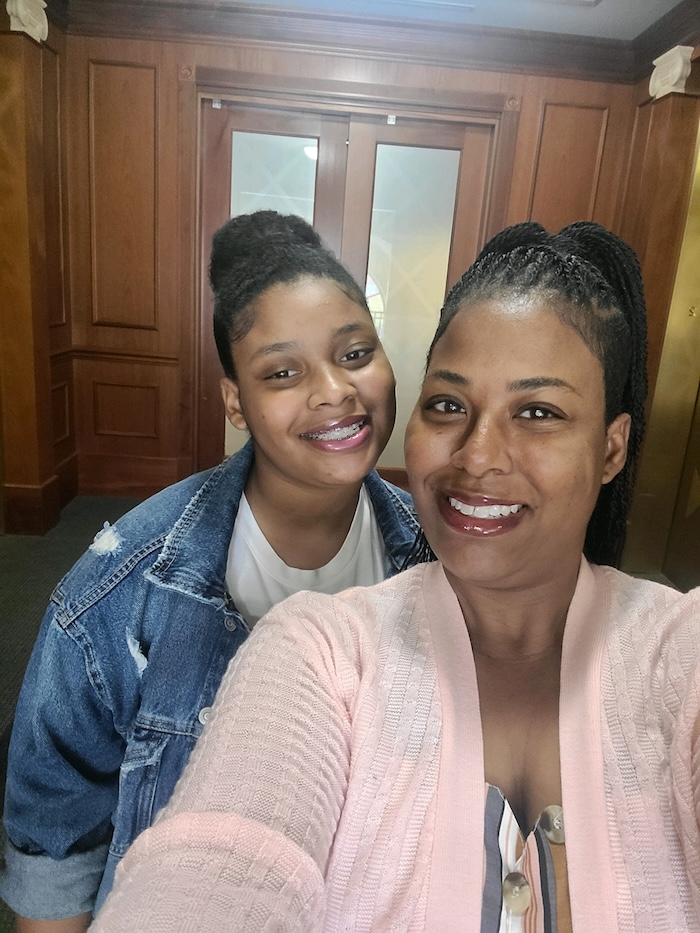 an active member of my community. I volunteer with Lasagna Love, where I make lasagna for families each month. I also serve as an usher and participate in the Women’s Ministry at my church. At school, I’m involved in the Buddy Club and Student Council as a youth advocate. As a content creator, I share my personal story to inspire others and show them that they can achieve anything they set their minds to.
an active member of my community. I volunteer with Lasagna Love, where I make lasagna for families each month. I also serve as an usher and participate in the Women’s Ministry at my church. At school, I’m involved in the Buddy Club and Student Council as a youth advocate. As a content creator, I share my personal story to inspire others and show them that they can achieve anything they set their minds to. in pageants to inspire others who are like me. I am proud to have been named 4-H Volunteer of the Year for two years in a row. I love helping others and advocating for a world where all abilities are celebrated and making the world more inclusive.
in pageants to inspire others who are like me. I am proud to have been named 4-H Volunteer of the Year for two years in a row. I love helping others and advocating for a world where all abilities are celebrated and making the world more inclusive.